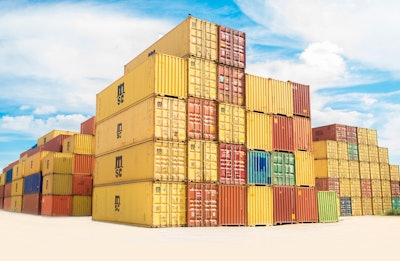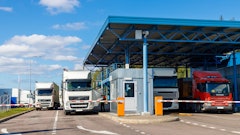
Logistics are complex. People outside this profession can hardly understand what the word means. When they ask what you do and you answer “logistics,” they nod their heads in approval, although they have no idea what you actually do.
The process of planning, production, material sourcing, delivering products to customers, and returning products involves loads of technicalities. Can you imagine what this profession would be like with no technology involved? Fortunately, you don’t have to imagine. Technology is available and it’s here to stay.
Let’s discuss it a bit today, shall we?
What are the most important technology innovations that improved the performance in the logistics niche?
1. Digital Twins Optimize the Supply Chain Process
If logistics aren’t reliable, the entire business can fall apart. All the data has to be backed up, so it could get recovered in case it gets lost. It happens. Systems crash and downtimes occur. Regular backups in the cloud can save the situation. These act as digital twins of all the data used in the process of logistics.
There’s no need to hire pro programmers form an assignment help service to recover any lost data. Whenever you need to access these files, they will be there, waiting for you. The cloud won’t crash and it won’t fail you.
2. Blockchain Can Track the Path of Products
When you look at diamond earrings, can you imagine the entire process of logistics behind such a product? The diamonds were mined. Then they were purchased by someone who sold it to a jewelry creator. Then this small business sold the product to a larger business, and it finally got to a store. Maybe someone bought them before and sold them, so now another customer will buy them from another store.
The chain is complex with precious products. Blockchain makes the digital records simpler and accessible at any moment. This technology keeps a digital record of every step along the process. When you have the unique key for a particular diamond, you get information about its attributes and the entire journey from mining to the current jewelry store.
Blockchain is a relatively new technology that still hasn’t been explored enough in logistics. But it has a lot of potential and we’re excited to see how it transforms the industry.
3. Dynamic Route Systems Make Transport More Effective
When a business is processing hundreds or thousands of shipments to its clients or customers, transport is a crucial element of its effectiveness. In the era of eCommerce, businesses can save or lose a lot, depending on the systems they have in place. Dynamic routing is a system that creates routes from scratch. When compared to static routes, this kind of system finds a faster and more affordable transportation plan.
Of course; it’s supported by a special program that analyzes the destination and available routes at the moment. You can hire a programmer from a service like SuperiorPapers.com to build one for your business.
4. Big Data Analytics Optimize Logistics
Big data analytics are usually consumer-centered. Businesses use this method to understand the purchasing patterns of their target audience. But the technology finds its place in logistics, too.
When analyzing large volumes of data, we can identify the issues that occur during the supply chain. Essentially, we learn how to predict and prevent them. For example, we can learn when vehicles need maintenance by analyzing the breakdown patterns over the history.
5. Augmented Reality Improves Warehouse Management
It’s impossible for a large warehouse to function without some kind of technology that helps employees navigate through it. AR technology can help a warehouse employee identify the type and location of a particular product.
In 2016, DHL introduced a global AR program that made vision picking easy. The company equipped its employees with smart glasses, which displayed the correct placement of an item on the trolley. Thanks to the hands-free order picking, the employees were faster and made fewer errors.
6. The Internet of Things Changes Everything
The world of logistics is getting so advanced that we can barely track its progress. Satellite trackers that enable real-time monitoring of the location of products is only one of the amazing advancements we’ve seen lately.
This technology will help us to improve the use of asset, as well as to monitor and maintain machines during the production process.
7. Chatbots Change the Aspect of Customer Service
Thanks to conversational systems, businesses save a lot on the customer service department. If you try to contact a UK essays company, for example, you’re more likely to be welcomed by a chatbot than by a real agent. This sophisticated technology mimics real conversation. It’s effective in finding solutions for the customer. If it’s an unusual issue, the chat will direct the user to a customer support agent who’s in charge for the particular problem.
Tech Is Our Friend
Supply chain management is no longer a complex concept. Thanks to different tools and technologies, all aspects of the supply chain are easier to handle. The evolution doesn’t stop here. Aren’t you excited to see what the future brings?
Michael Gorman decided to buy assignment when he was at graduate school. Through constant work with professional college essay writers, he improved his skills. While attending a BA program for Applied Science in Transportation, Logistics and Supply Chain Management, Michael works on his essay reviewer site as a side project.



















